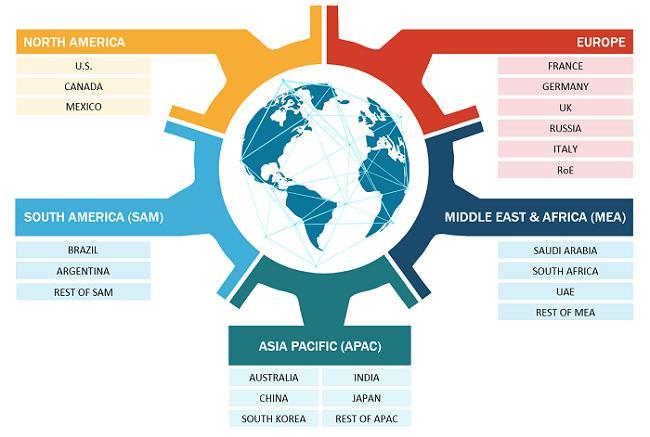Screening for US GAAP and Tax Compliance in Offshore Accounting Recruitment

As US businesses continue to expand globally, offshore accounting has become a strategic way to cut costs, boost efficiency, and access skilled financial professionals. But with these advantages comes one major responsibility: ensuring that offshore hires understand US GAAP, IRS rules, and federal/state tax requirements.
When companies begin recruiting offshore accountants, the biggest concerns often revolve around compliance. Are candidates trained in US accounting standards? Do they understand tax laws well enough to avoid errors? Can they manage complex US-based reporting requirements confidently?
This blog breaks down how US firms can screen offshore accountants for US GAAP proficiency, tax knowledge, and regulatory accuracy—while ensuring the accuracy and reliability needed in 2025’s evolving financial landscape.
Why US GAAP & Tax Compliance Screening Matters More Than Ever
Offshore hiring is no longer just about cutting costs. Today, it’s about building a reliable global finance structure. But compliance mistakes can be expensive:
-
Incorrect financial reporting
-
IRS penalties
-
Misclassified revenue or expenses
-
Payroll tax errors
-
State nexus misinterpretations
-
Delayed filings
-
Audit issues
The IRS and regulatory bodies are more vigilant than ever. That means every offshore accountant handling US books needs a strong understanding of:
-
GAAP (Generally Accepted Accounting Principles)
-
US federal tax laws
-
State-wise tax requirements
-
Sales tax, nexus, and compliance
-
Payroll rules and filings
-
Book-to-tax adjustments
Without proper screening, companies risk putting their financial integrity at stake.
What US GAAP Knowledge Should Offshore Accountants Have?
When screening offshore accountants, US GAAP understanding is non-negotiable. But what exactly should they know?
1. Core GAAP Principles
Candidates must understand:
-
Accrual vs. cash basis
-
Revenue recognition (ASC 606)
-
Expense matching
-
Consistency and comparability
-
Materiality
-
Conservatism
-
Full disclosure requirements
2. Basic to Advanced Accounting Concepts
A qualified offshore accountant should be strong in:
-
Journal entries
-
Adjusting entries
-
Depreciation methods
-
Inventory costing (FIFO, LIFO, Weighted average)
-
Accounts receivable & bad debt
-
Fixed assets and amortization
-
Prepaid expenses
-
Accrued liabilities
-
Reconciling GL accounts
These form the foundation for accurate financial reporting.
3. Financial Statement Preparation
Look for the ability to prepare:
-
Balance sheets
-
Income statements
-
Cash flow statements
-
Statements of retained earnings
Candidates should also understand how US companies structure their charts of accounts and how GAAP affects presentation formats.
4. Familiarity With US Accounting Software
Whether your company uses:
-
QuickBooks
-
Xero
-
NetSuite
-
Sage Intacct
-
SAP
-
FreshBooks
-
Zoho Books
—your offshore accountant should have practical, hands-on experience.
Screening for US Tax Compliance: What to Look For
US tax laws are complex, constantly evolving, and vary across states. Proper screening must ensure offshore accountants can navigate these nuances confidently.
1. Federal Tax Basics
Evaluate their understanding of:
-
IRS rules
-
Corporate tax structure
-
1099 compliance
-
Deductible vs. non-deductible expenses
-
Depreciation rules (MACRS)
-
Estimated tax payments
-
Payroll tax requirements
2. State and Local Tax Exposure
State laws vary widely. Offshore accountants should know:
-
Nexus rules
-
Sales tax differences
-
Franchise taxes
-
Multi-state filings
This is crucial for companies that operate across state lines.
3. Tax Forms and Compliance Requirements
An offshore accountant should understand key forms like:
-
1040 schedules (if supporting CPA firms)
-
1120, 1120-S, 1065
-
W2, W4, W9, 1099-NEC
-
940 & 941 payroll filings
-
Sales tax returns
They should also know how to maintain audit-ready documentation.
4. Book-to-Tax Adjustments
This is a key screening area. Look for knowledge of:
-
Depreciation differences
-
Timing adjustments
-
Non-deductible expenses
-
Carryforwards (NOLs, credits)
These adjustments often confuse inexperienced offshore accountants.
How to Build an Effective Screening Process for Offshore Accountants
Here’s a step-by-step structure you can use:
1. Conduct a Skills-Based Written Test
Include sections like:
-
Journal entry accuracy
-
Invoice categorization
-
GAAP application scenarios
-
Tax classification questions
-
Payroll and sales tax examples
This filters out unqualified candidates early.
2. Use Real-World Practical Assignments
Give candidates sample tasks:
-
Reconcile a bank statement
-
Prepare a sample P&L
-
Classify expenses
-
Create adjusting entries
-
Correct an incorrectly coded transaction
-
Review a mock tax scenario
This shows how they perform in real environments.
3. Technical Interview Round
Ask questions such as:
-
“Explain ASC 606 in simple terms.”
-
“How would you handle a multi-state sales tax case?”
-
“Walk me through a bank reconciliation.”
-
“How do you classify contractor vs. employee?”
This evaluates conceptual clarity.
4. Software Skills Assessment
Have them demonstrate:
-
Posting journal entries
-
Creating bills and vendor profiles
-
Reconciling accounts
-
Running standard reports
-
Setting up chart of accounts
-
Filing 1099 and payroll reports
Hands-on skills matter more than theoretical knowledge.
5. Communication Skills Test
Offshore accountants must be able to:
-
Communicate findings clearly
-
Ask the right questions
-
Document processes
-
Collaborate with US-based teams
Clear communication reduces errors and speeds up workflows.
Answers to Common Questions Decision-Makers Ask
Do offshore accountants need full CPA-level knowledge?
No—but they must understand GAAP, IRS basics, and compliance workflows.
How do we ensure data security?
Use permission-based access, secure servers, MFA, and encrypted cloud tools.
Can offshore accountants handle tax season workloads?
Yes—most offshore teams are trained for high-volume, deadline-driven environments.
What is the most important screening factor?
A blend of GAAP knowledge, tax understanding, software skills, and communication ability.
Final Thoughts
In today’s competitive financial environment, offshore hiring is a powerful strategy—but only when compliance is handled correctly. Screening for US GAAP and tax knowledge ensures that offshore accountants can support accurate reporting, maintain compliance, and reduce audit and IRS risks.
The right approach to recruiting offshore accountants allows US businesses to build reliable, scalable, and cost-effective finance teams—without compromising on accuracy or quality.






